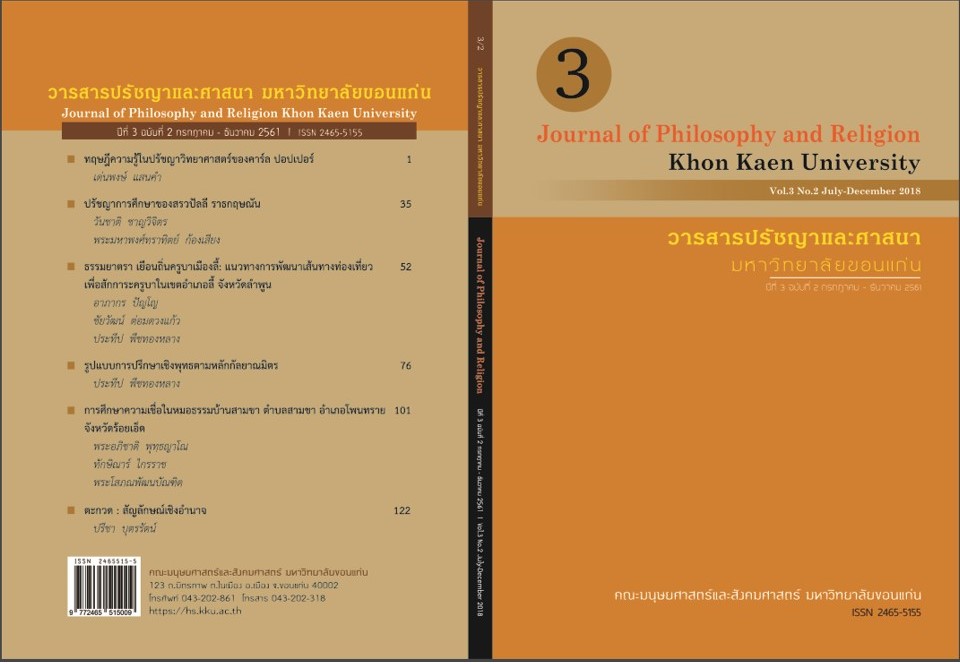A Study of Belief in Modhum at Baan Samkha, Phonsai District, Roi-et Province
Main Article Content
Abstract
A Study of Belief in Modhum (is a northeast of Thailand medical knowledge, this medical knowledge is a specific treatment for the patience who believe that they have been hunted by the dark spirit) at Baan Samkha, Phosai District, Roi-et Provice” aims to 1) study the social doctrine of Modhum in the northeastern of Thai context, 2) study the beliefs and practices of Modhum in the area, and 3) analyze the teachings of Buddhism that appeared in Modhum. This research is a qualitative research focusing on field data collection with in depth interview, and presents its findings by way of descriptive analysis. The findings show that the belief of Modhum in the northeastern context is one of the traditional doctors who have learned and practiced magic that strictly abided on the requirements and prohibitions that teachers had taught. Northeastern people have a strong belief and respect to Modhum as they do with a monk. People believe that Modhum can protect them against all dangers of supernatural things. In addition, Modhum also serves as a sanctuary for the maintenance of body and mind to everyone in the community. For the belief and the practice about Modhum in the area, local people
believe that Modhum is a person who behaves as a good example for the community as they follows five precepts strictly. Additionally, Modhum can also dispel all types of evils. Any illnesses are believed to have been caused by the actions of evils. Therefore, people often come to Modhum to receive some magic holy water to dispel evils away. Results underlying the teachings of Buddhism appeared in Modhum reveal that Modhum must at least follow the five precepts to preserve traditional ethic. Also they must comply with the prohibitions on teachers’ teachings. As they believe that if they do not follow the teachings, they might encounter the failure or deterioration that may turn themselves evil ones. Also, some of the ritualistic steps Modhum needs to teach his disciples to follow the five precepts, such as abstain from eating meat, abstain from taking what is not given or stealing, abstain from sexual misconduct, abstain from telling lies, abstain from intoxicants or harmful substances and the four sublime states of mind, that is, loving-kindness, compassion, sympathetic joy and equanimity. Including, four Sangahavatthu, namely, Dana (giving), Piyavaca (kindly speech), Atthacariya (useful conduct), and Samanattata (equality consisting in impartiality).


